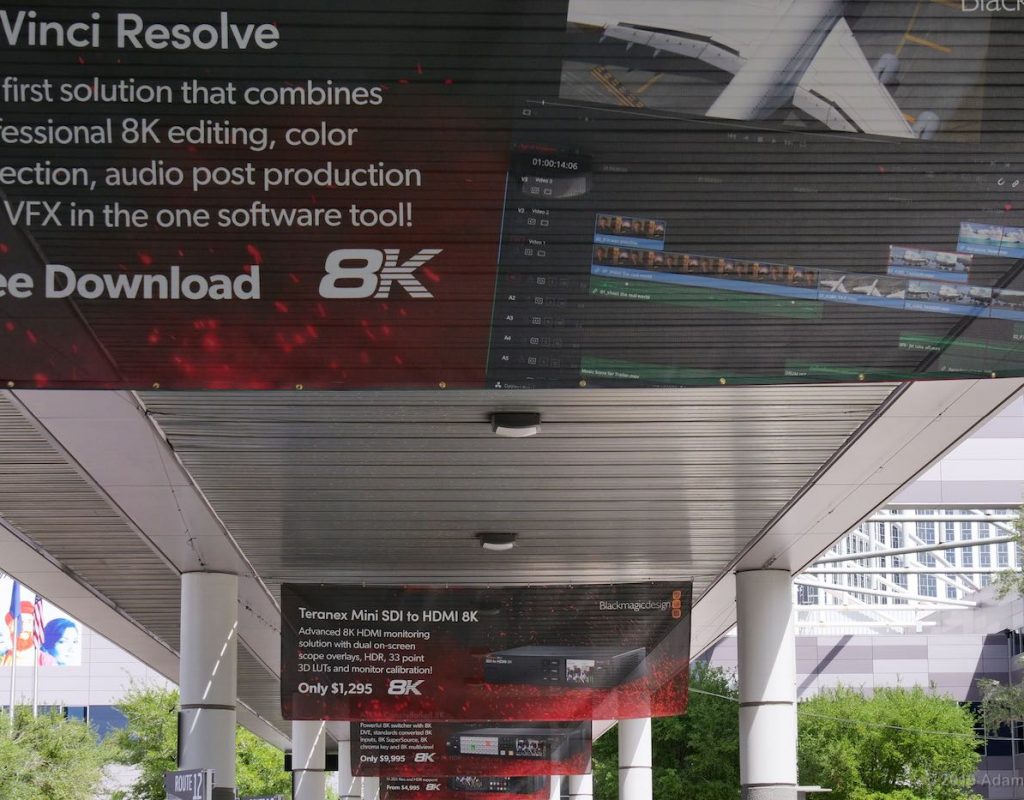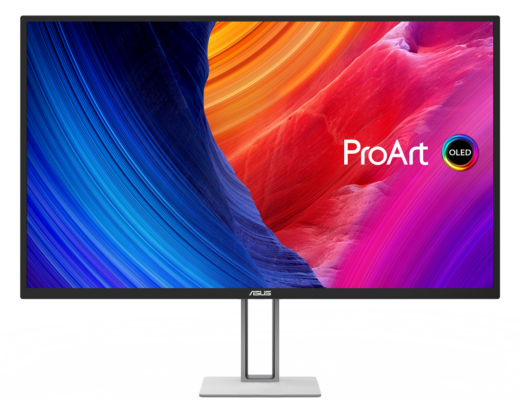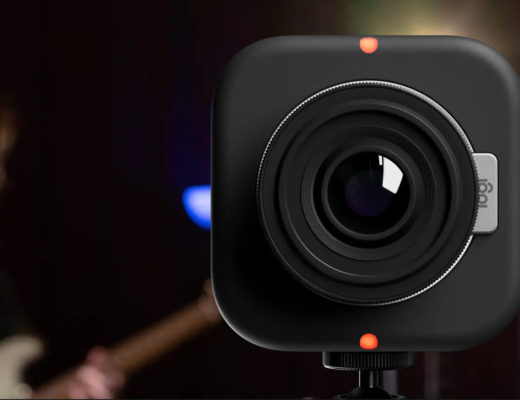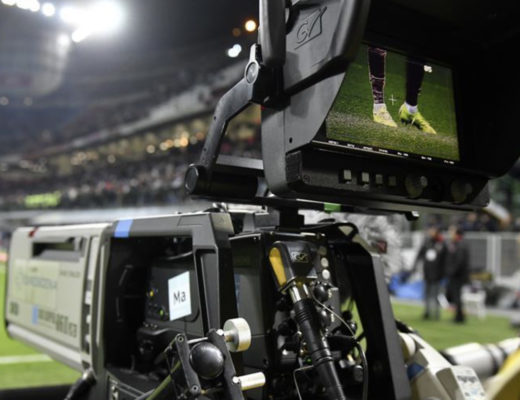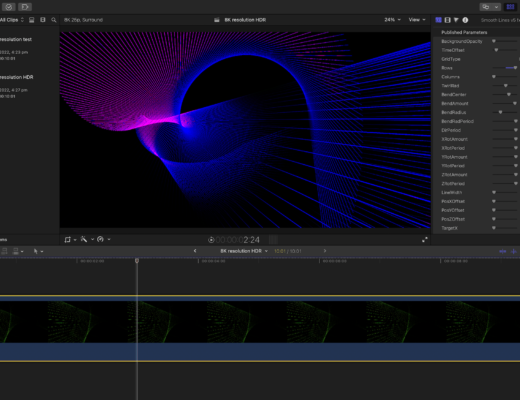NAB 2019 marked the point where — without any particular fanfare — 8K television moved from a gee-whiz technology demo to a practical production, post-production, and distribution system.
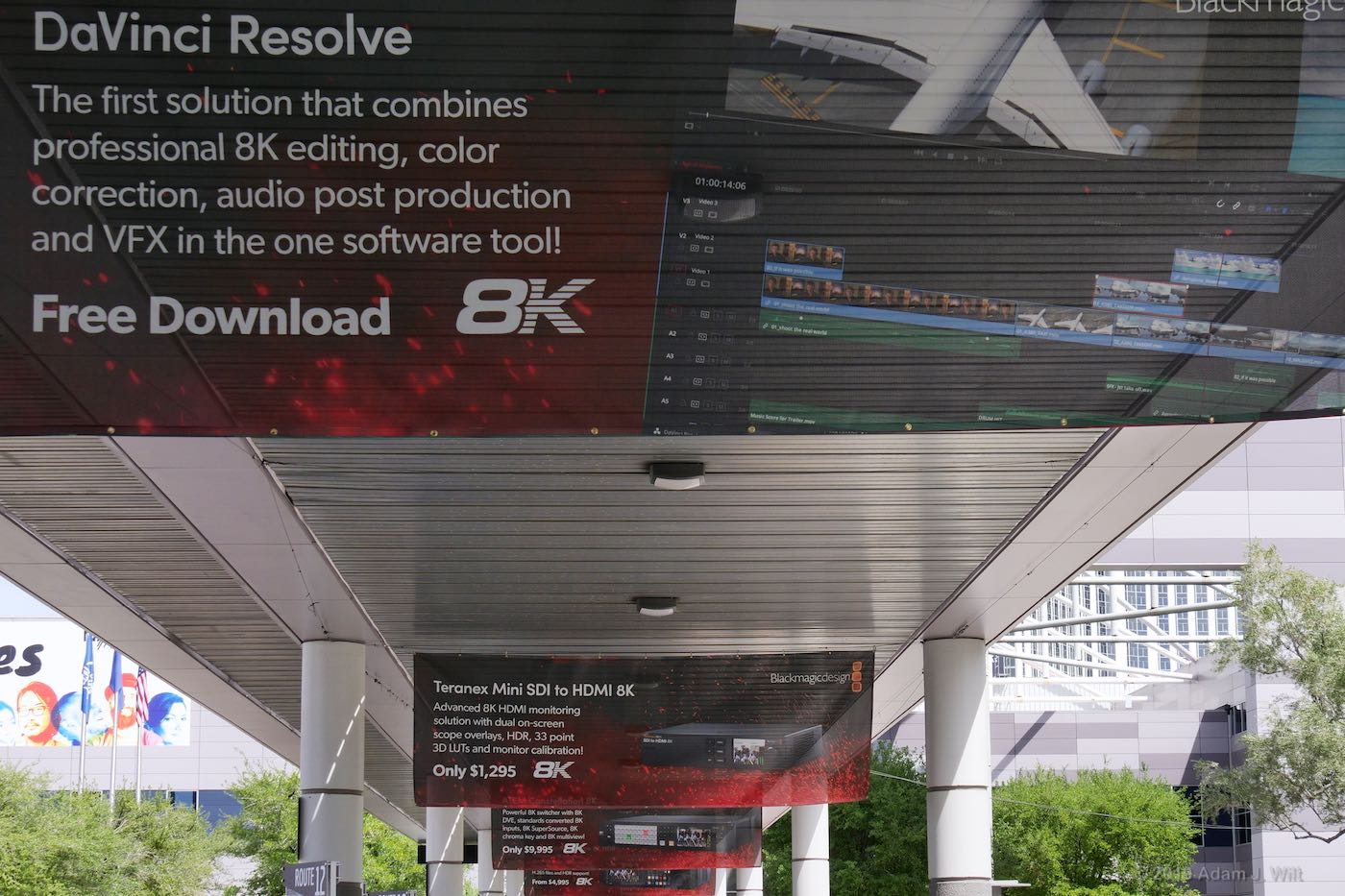
Blackmagic Design’s signage was all about 8K; they showed off 8K recording, switching, terminal gear, and editing — everything, it seems, but cameras. No worries: Ikegami had 8K studio cameras and Sharp showed their 8K shoulder-mount camcorder, both were unremarkable in their normalcy. Only their 8K badging sets them apart from their run-of-the-mill HD and 4K brethren.
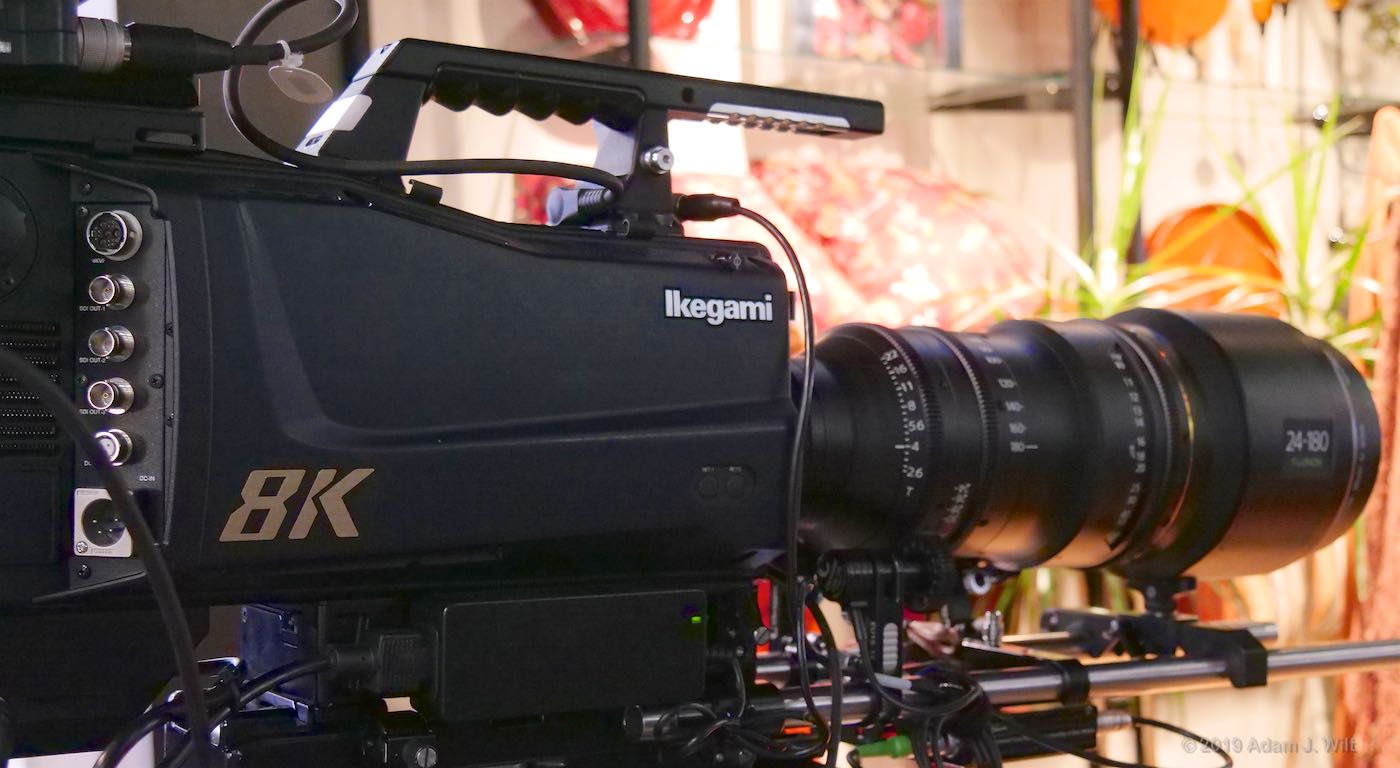
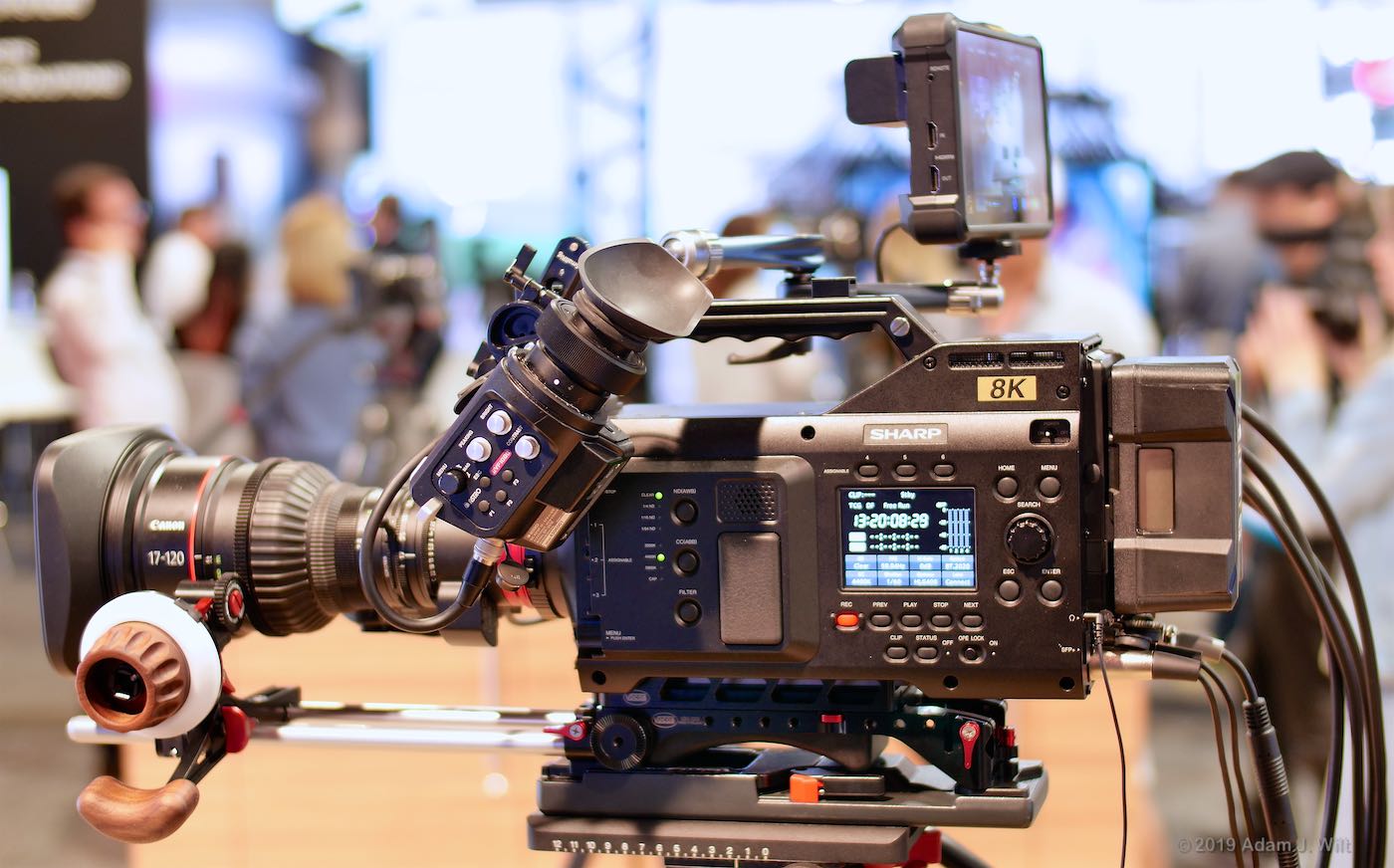
(As for 4K, it’s no longer a headline feature. Sony’s press conference featured 4K, high-frame-rate cameras: HDC-3500, HDC-4300, HDC-5500, and HDC-P50. Panasonic offered the AK-UC4000 4K camera using standard 2/3” box lenses and the 4K AG-CX350 camcorder; and JVC previewed the 4K GY-HC500 and 550 “connected cams”. But 4K is simply table stakes these days, along with HDR; it’s just something you’re expected to have to be a serious player.)
That’s not to say that 8K is cheap or easy yet. The workstations, storage, and terminal equipment being shown (in signage and in the flesh) at Astrodesign, Sharp, and NHK exhibits all have that big-iron smell to them; these aren’t desktop or portable systems… yet.
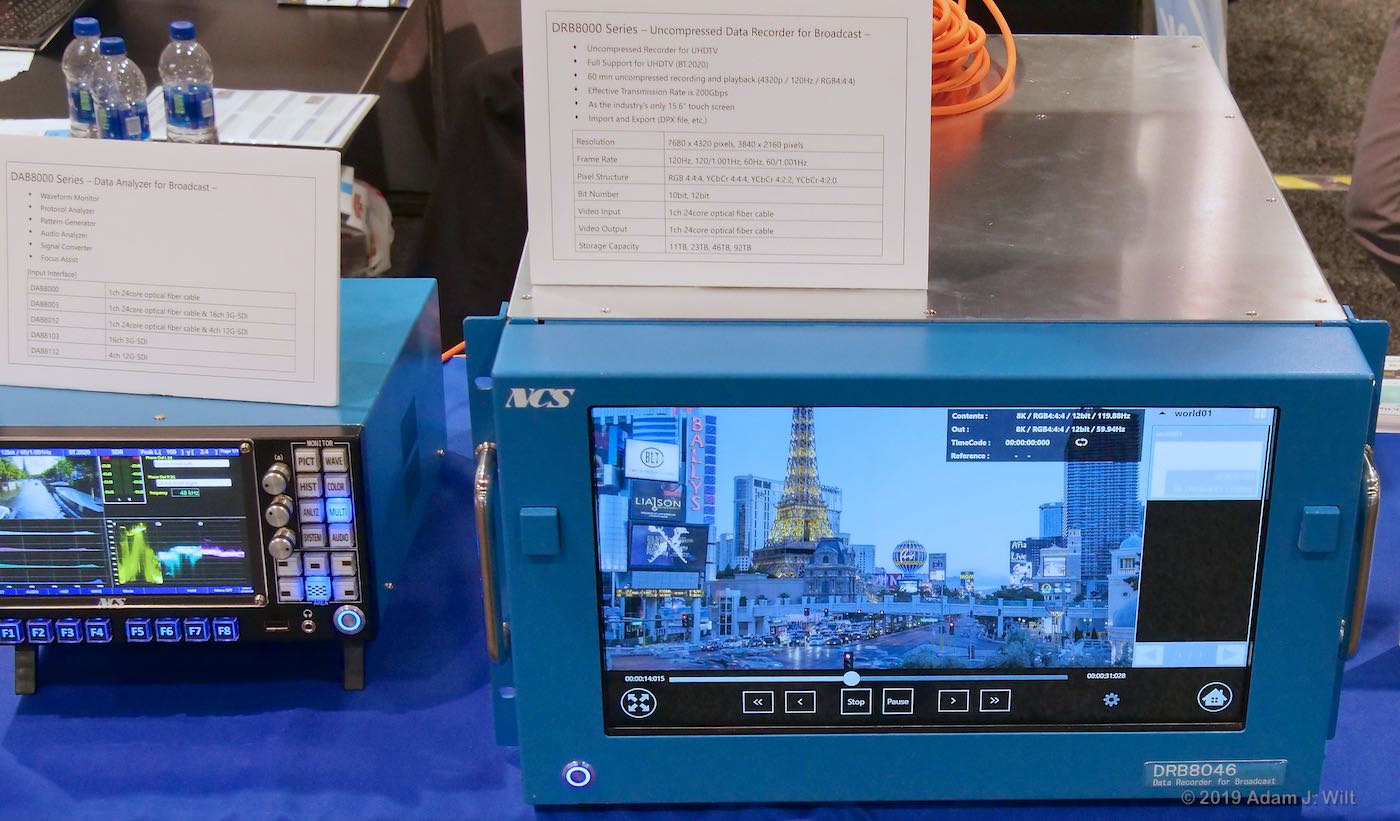
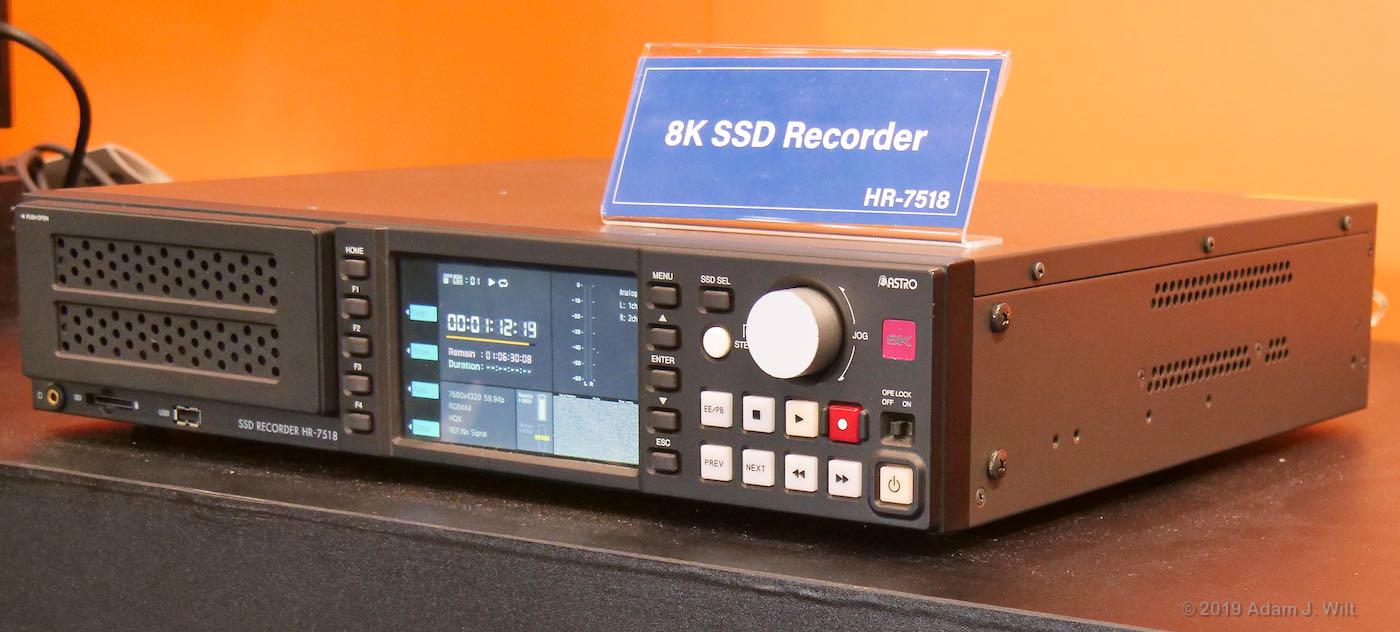
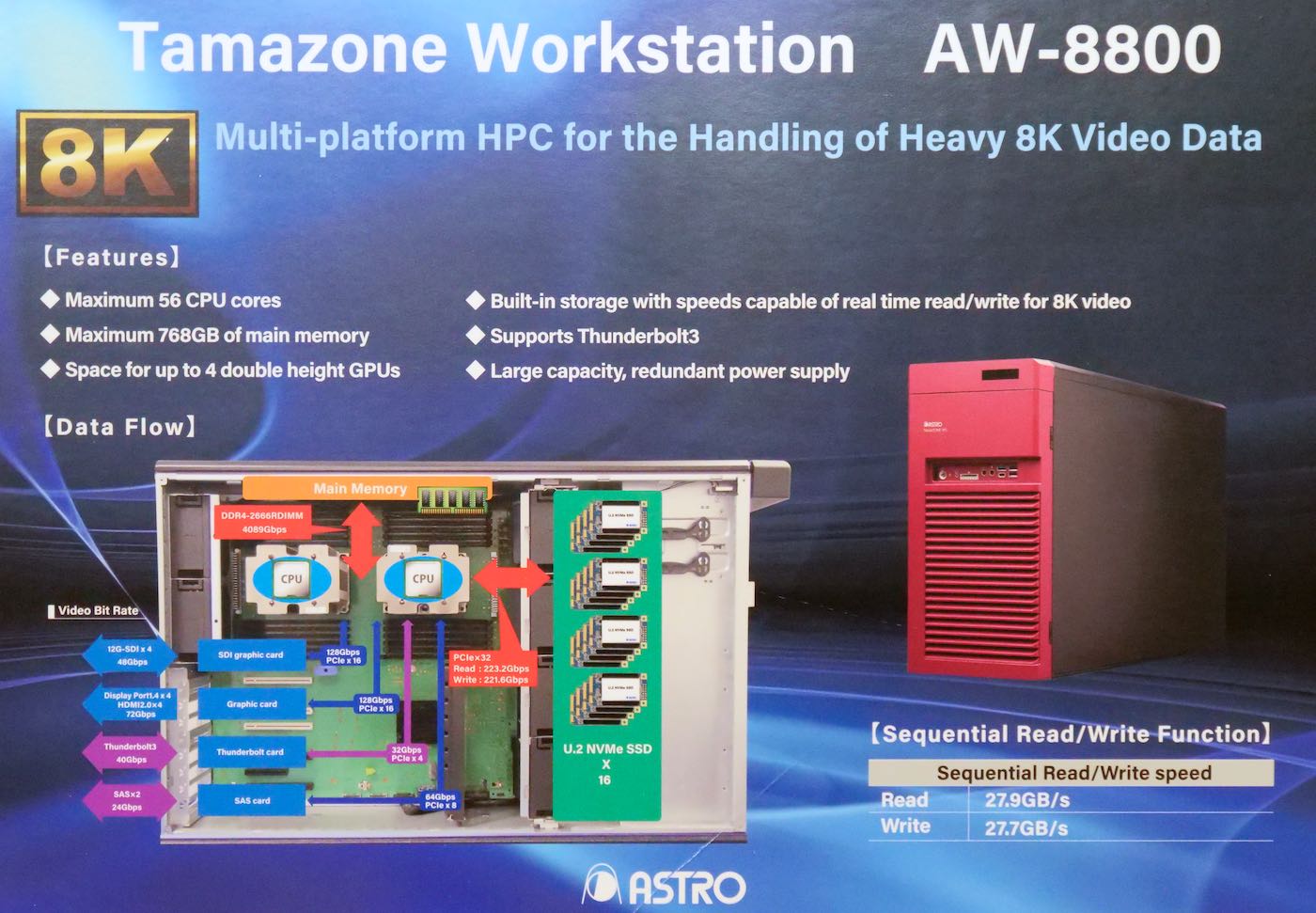
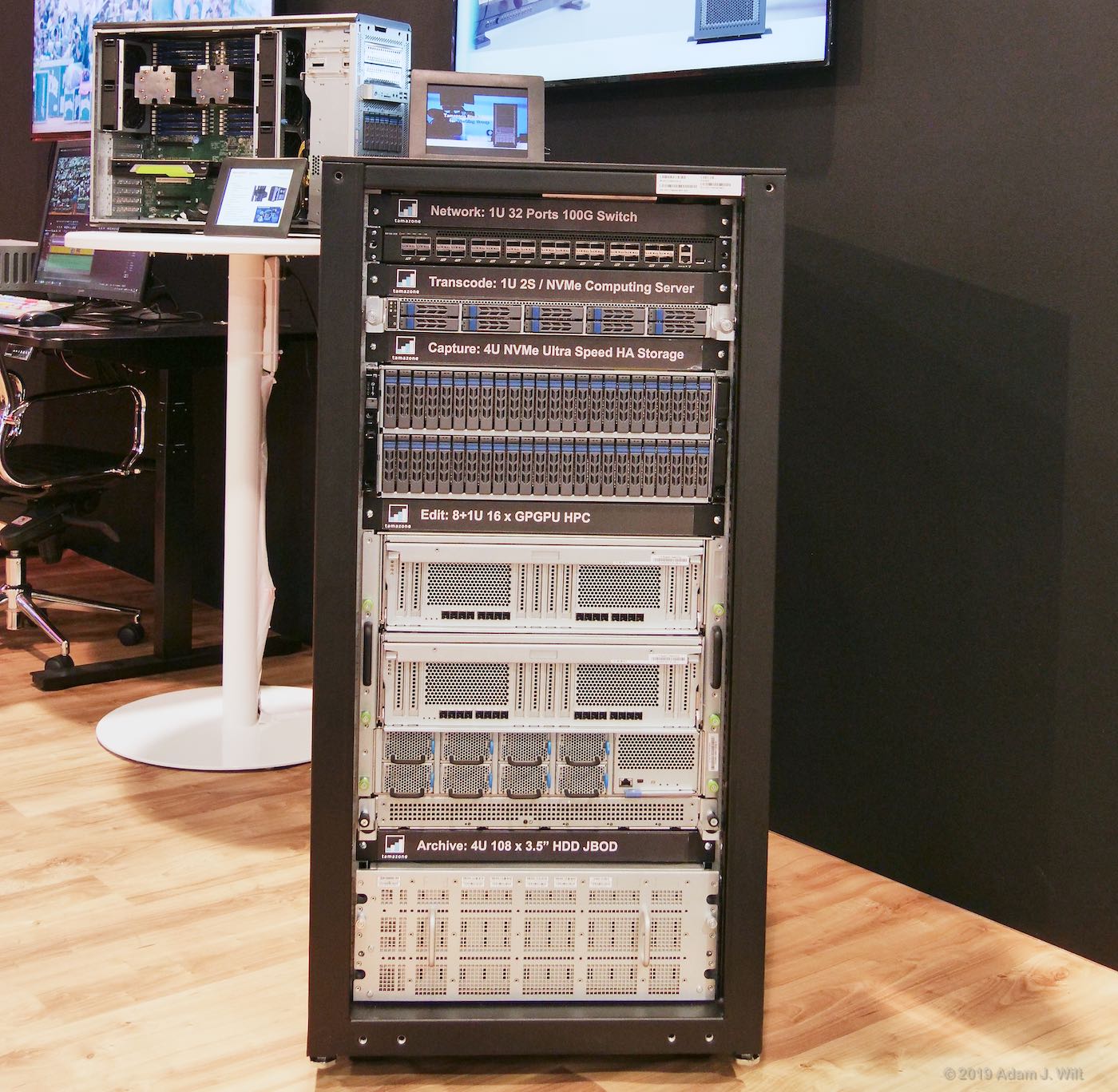
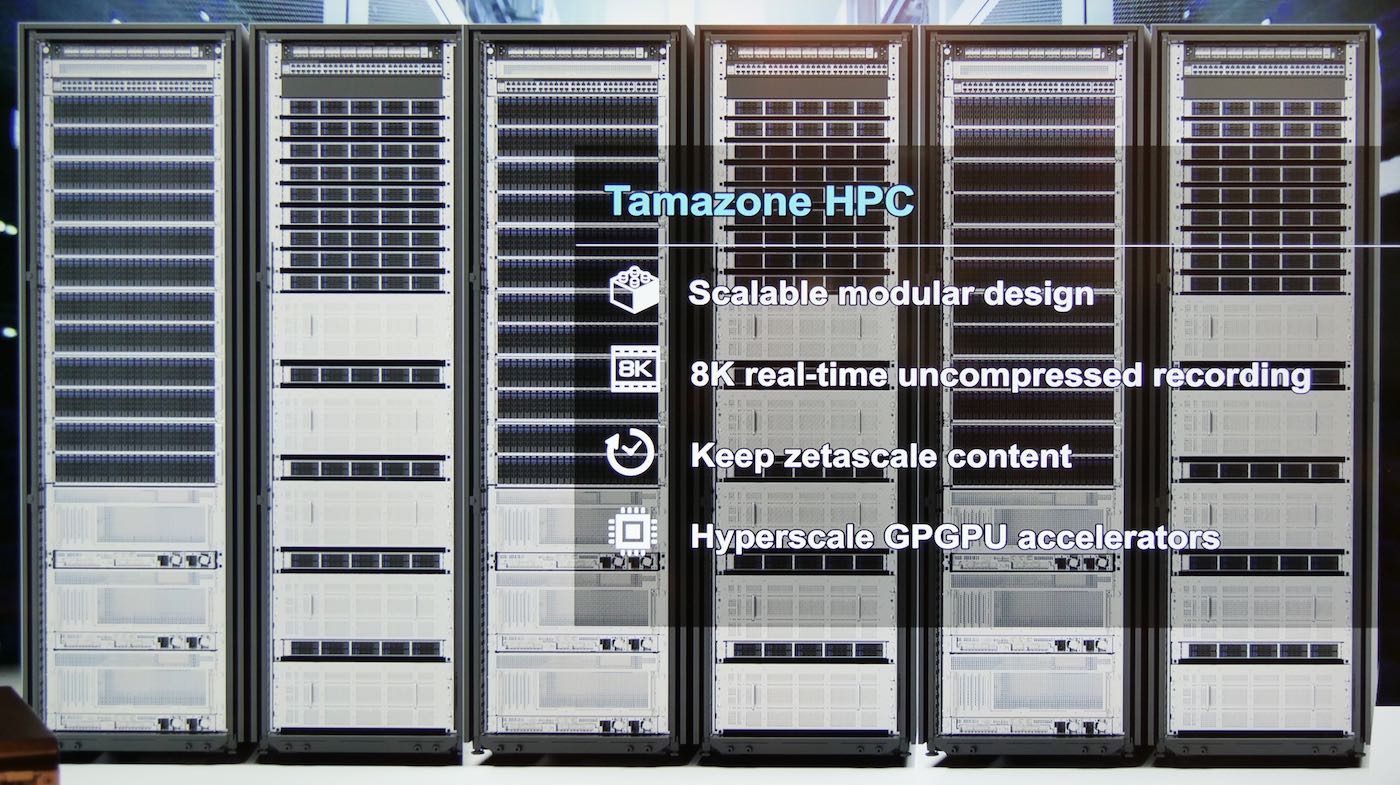
And while satcasting has started and the Tokyo 2020 Olympics loom large, there’s still R&D going on: upscaling HD to 8K, boosting the frame rate from a just-barely-acceptable 60p to a more watchable 120p, developing terrestrial transmission technology, and working on layered signals with a mobile-friendly 2K base layer and an 8K enhancement layer atop it.
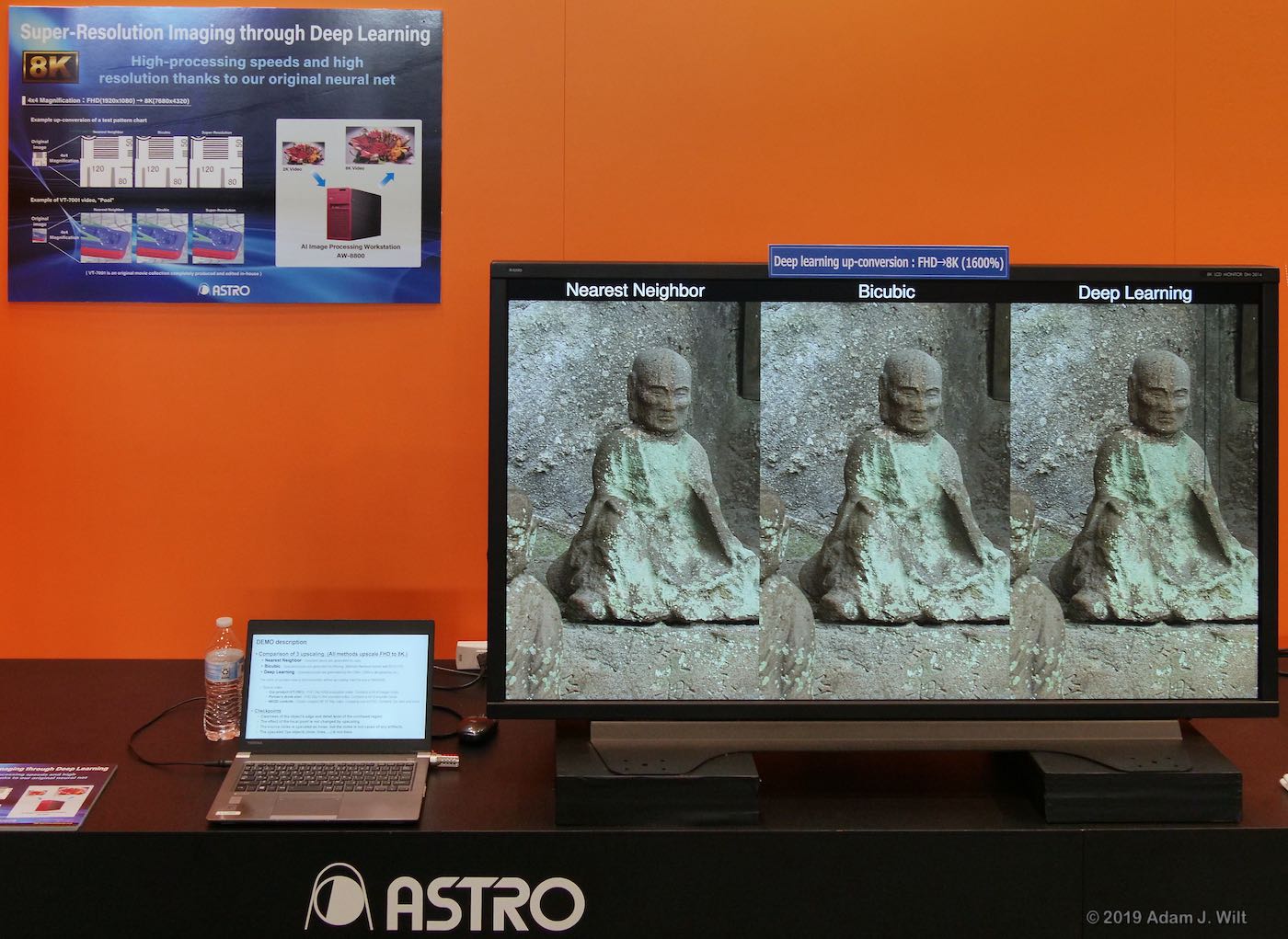
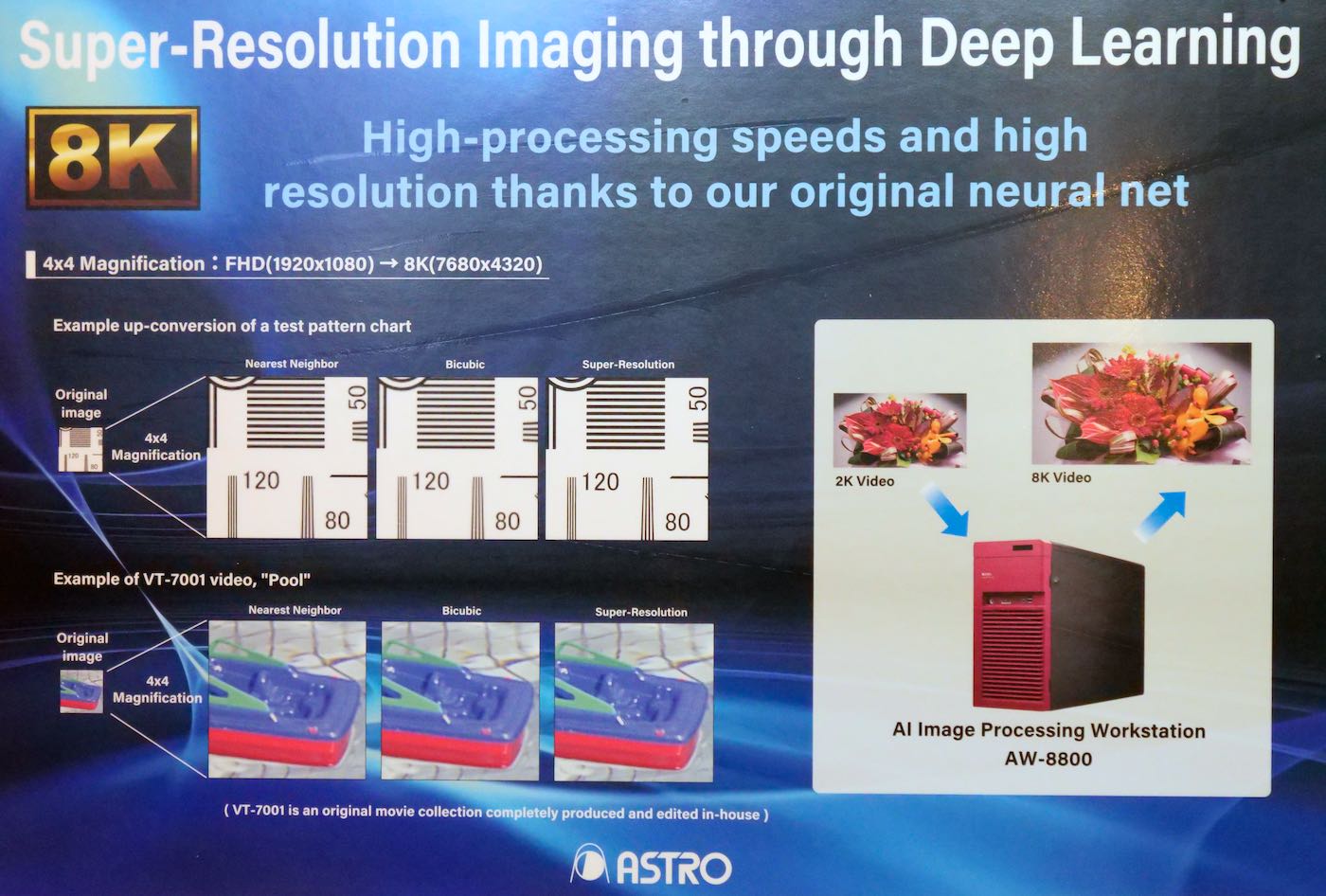
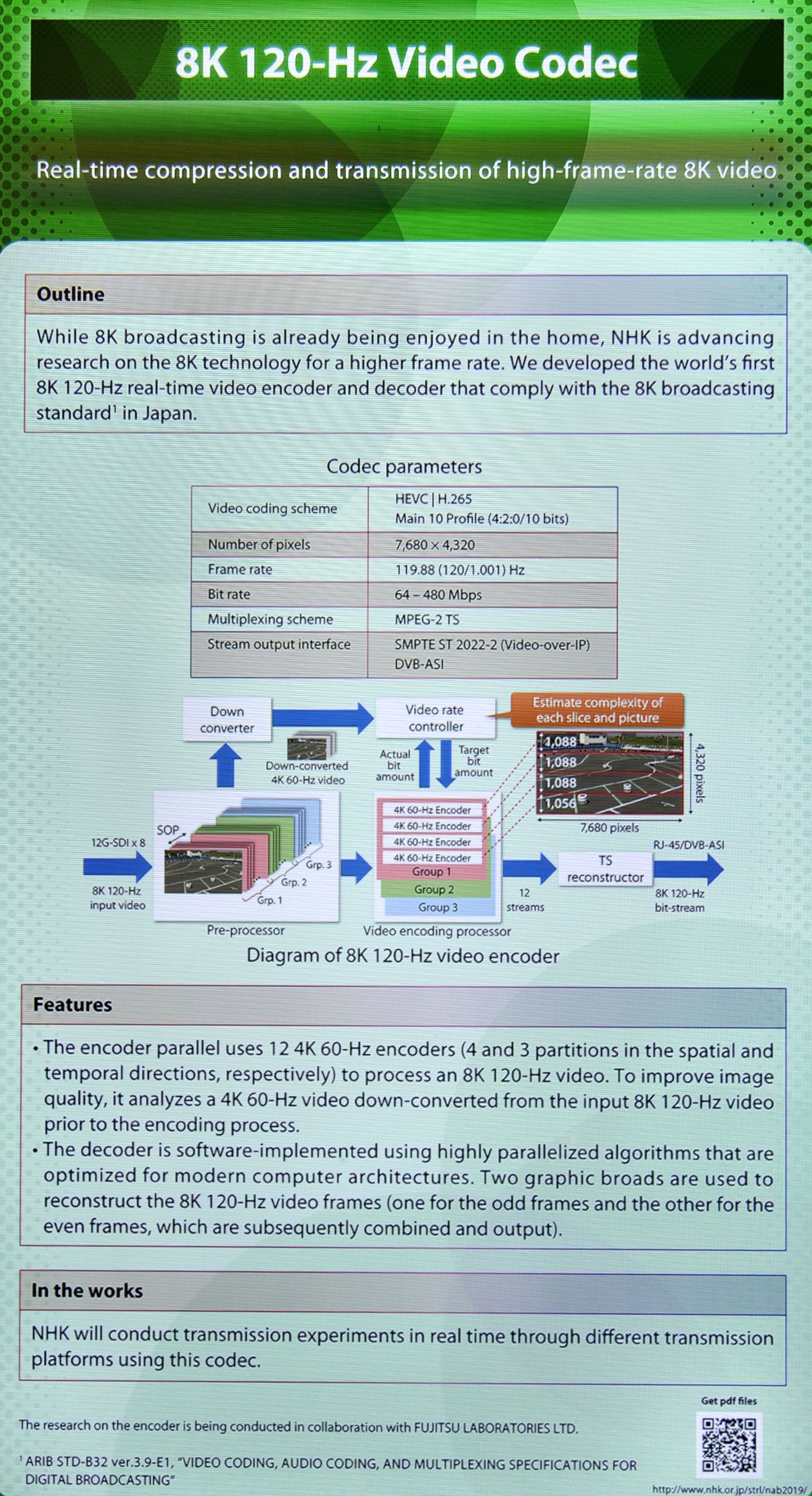
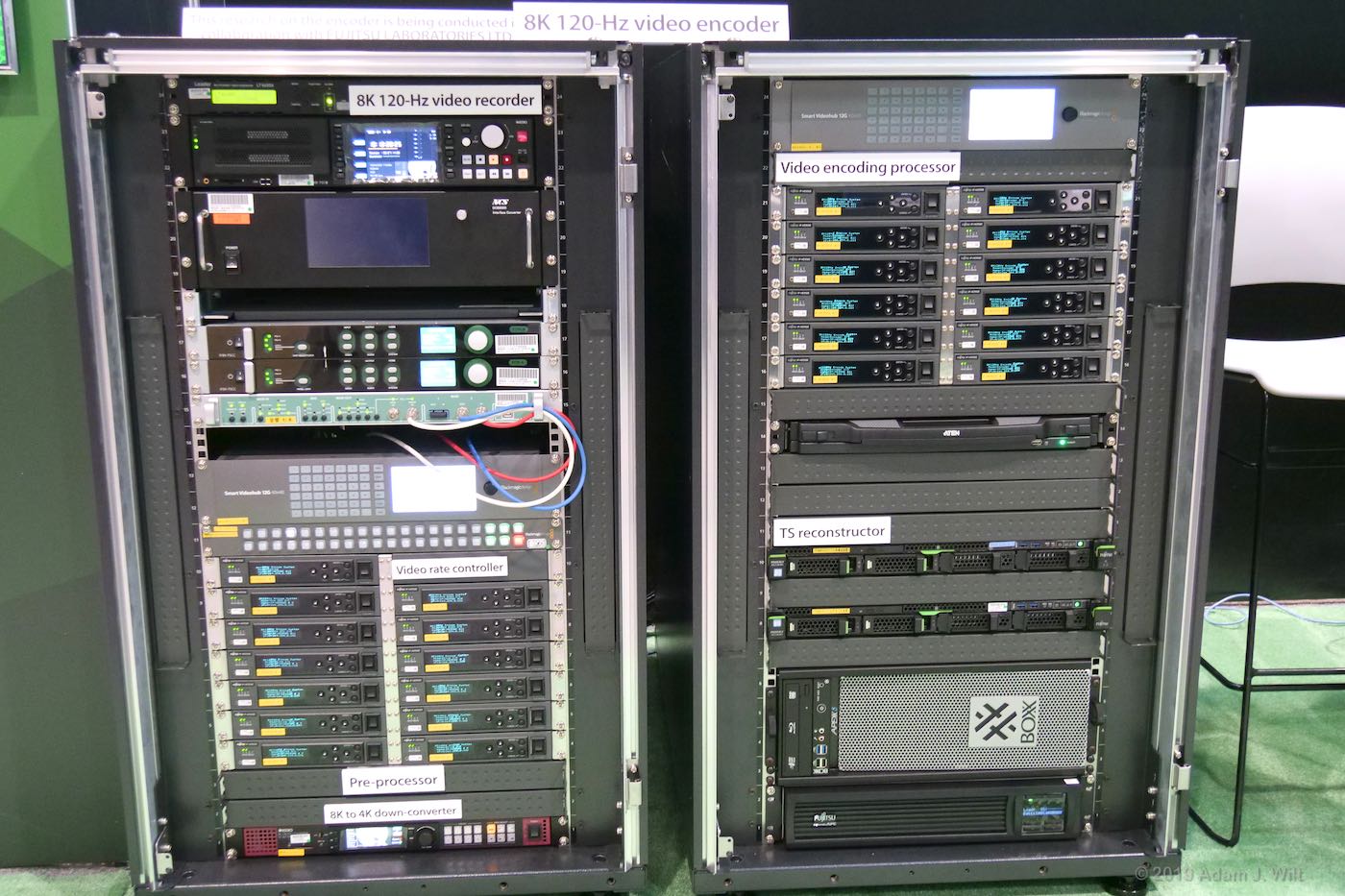
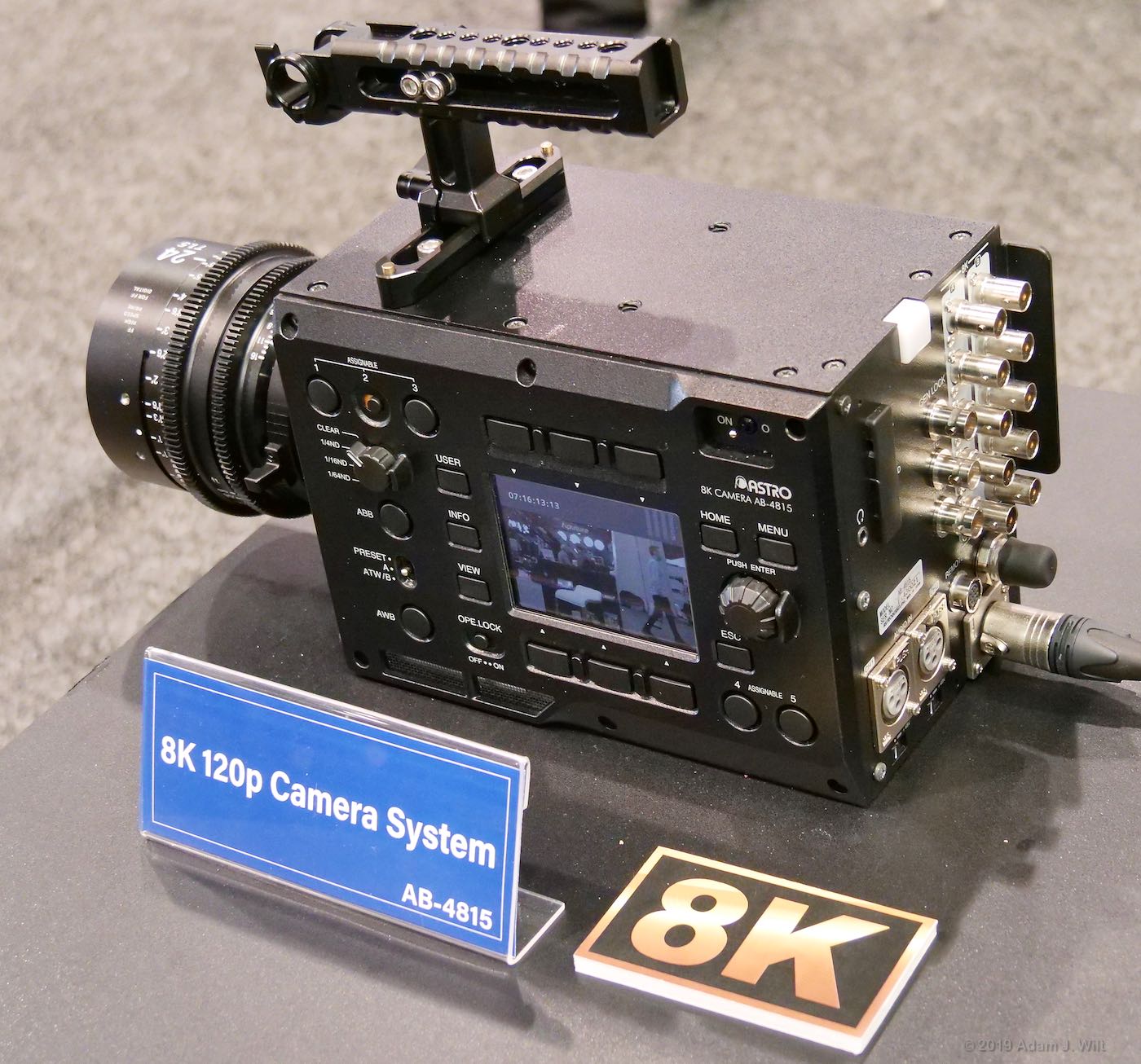
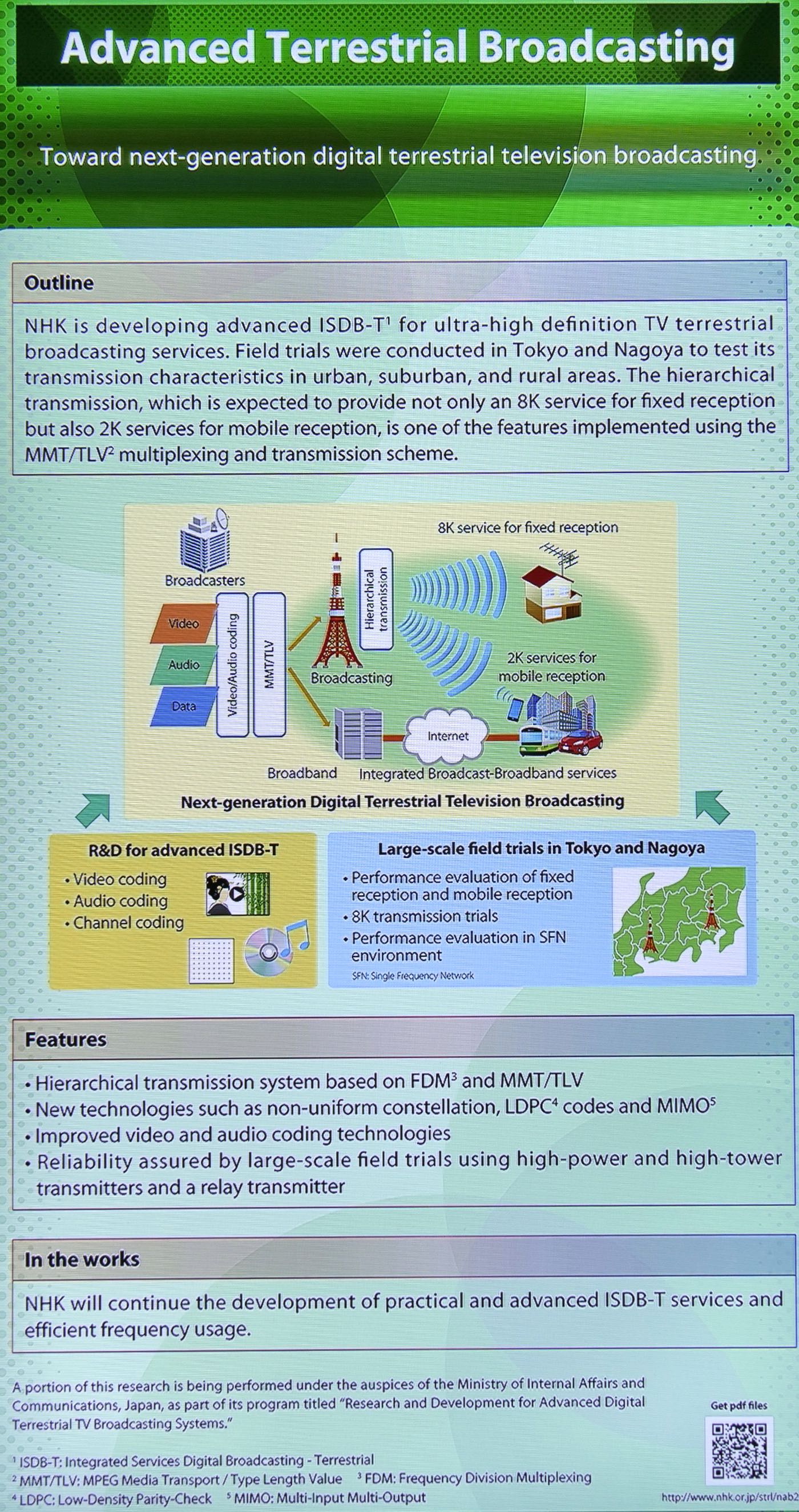
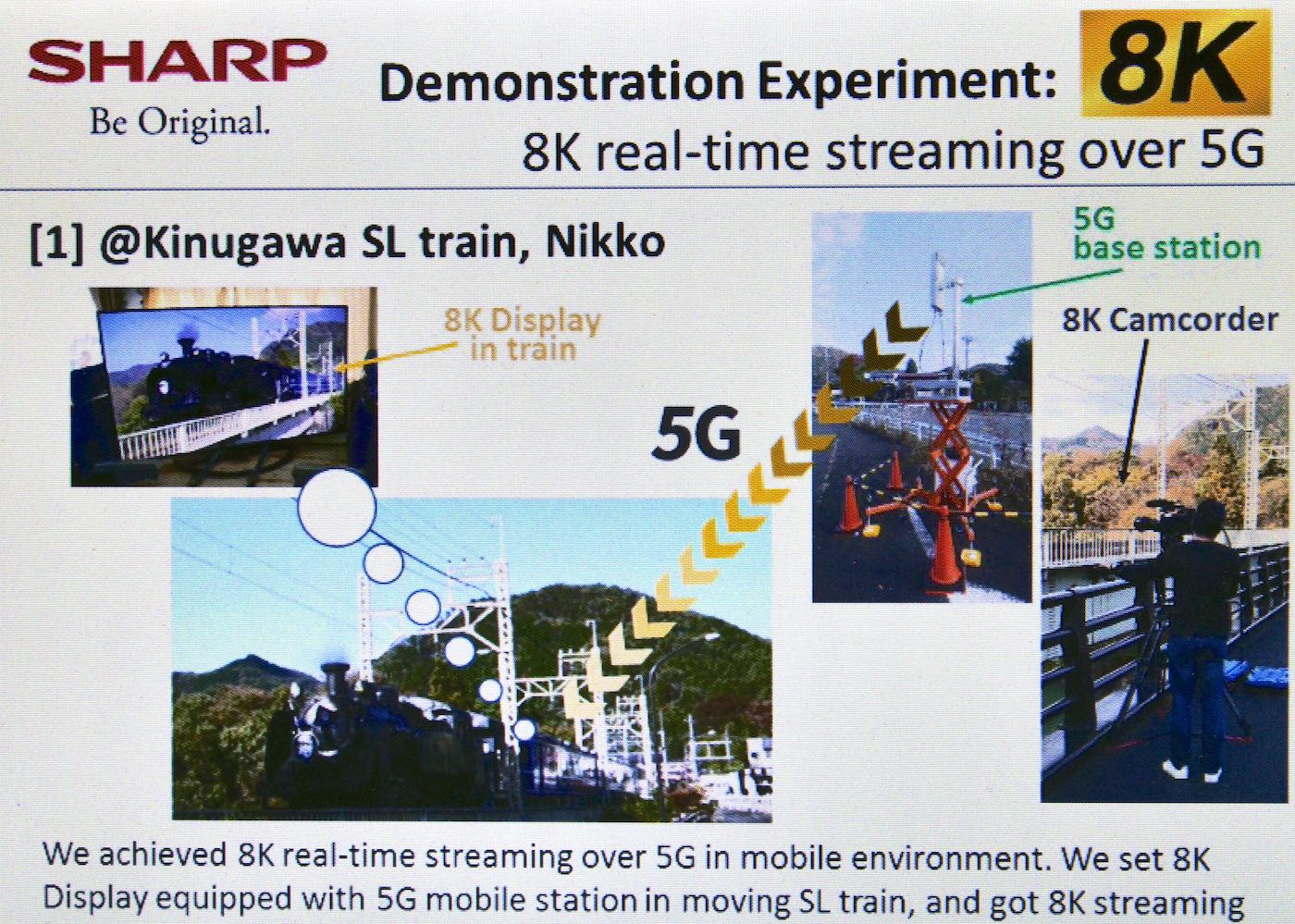
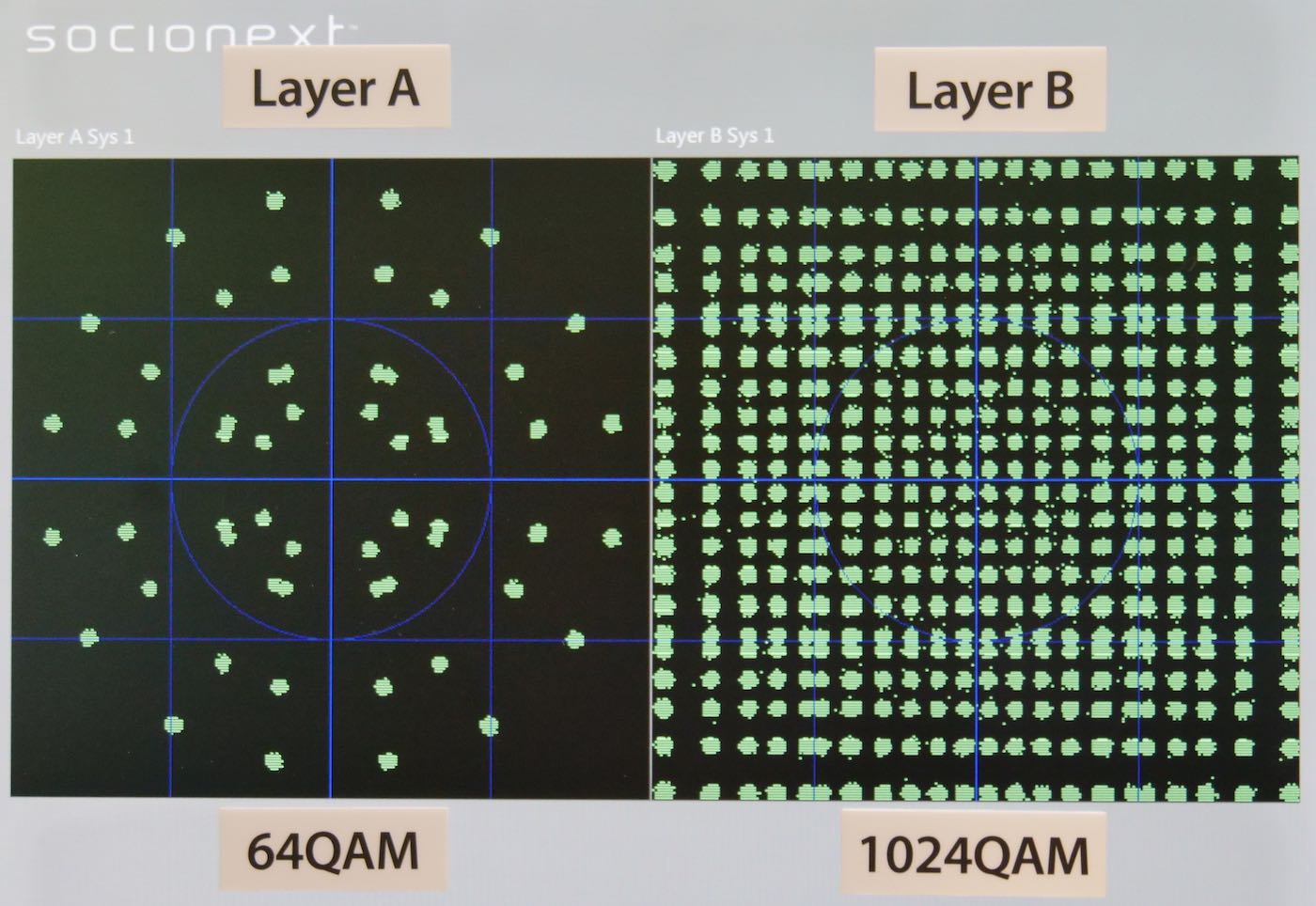
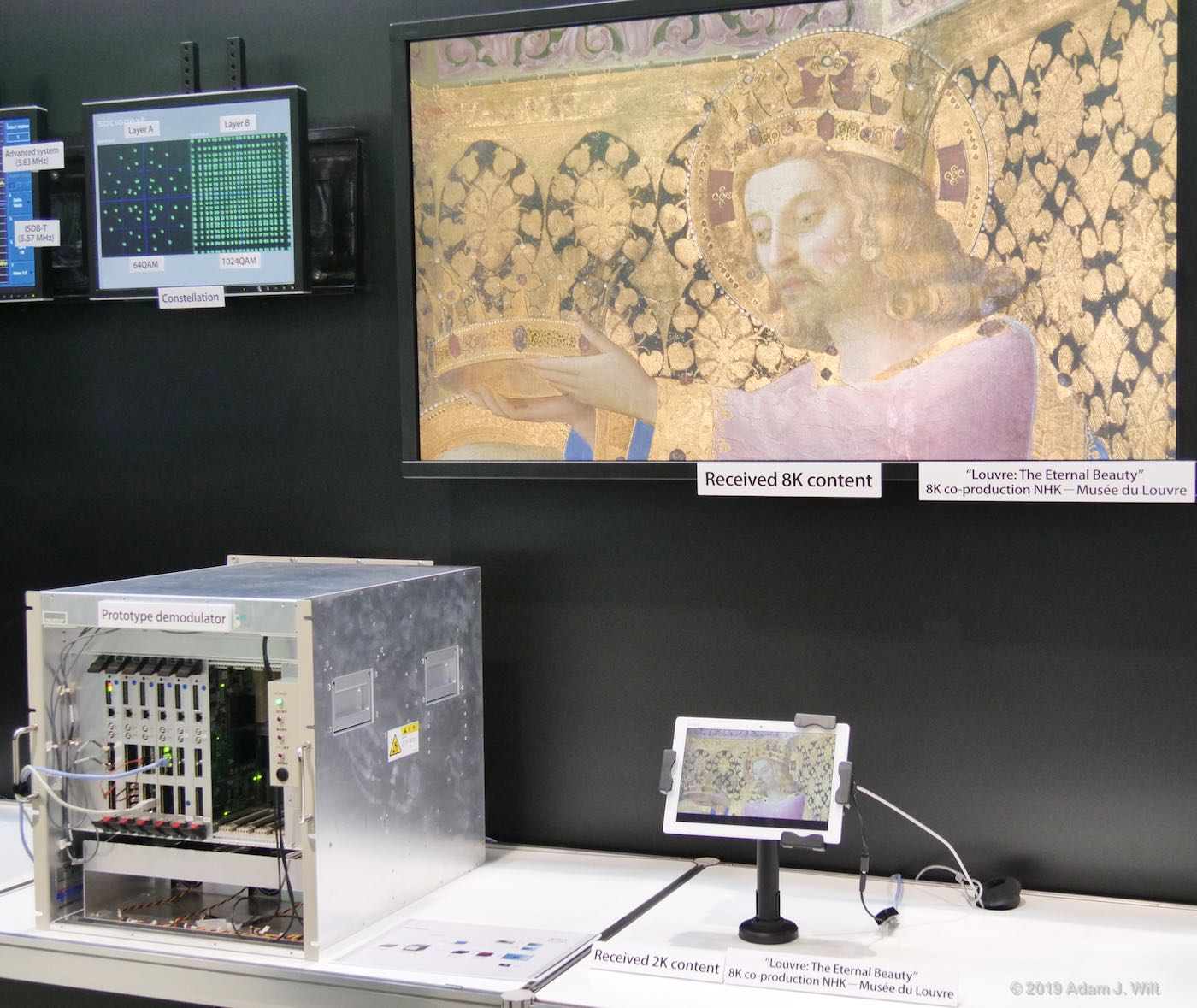
But two things drove home the point that 8K is here. First, the NHK exhibit in the NAB Futures Park section of North Hall no longer featured an 8K Theater presentation. Instead, there was “only” the 8K living room, a smallish room dominated by an 80” 8K display and 22.2 sound. Photographs were not allowed, but imagine a room just big enough to contain the following diagram:
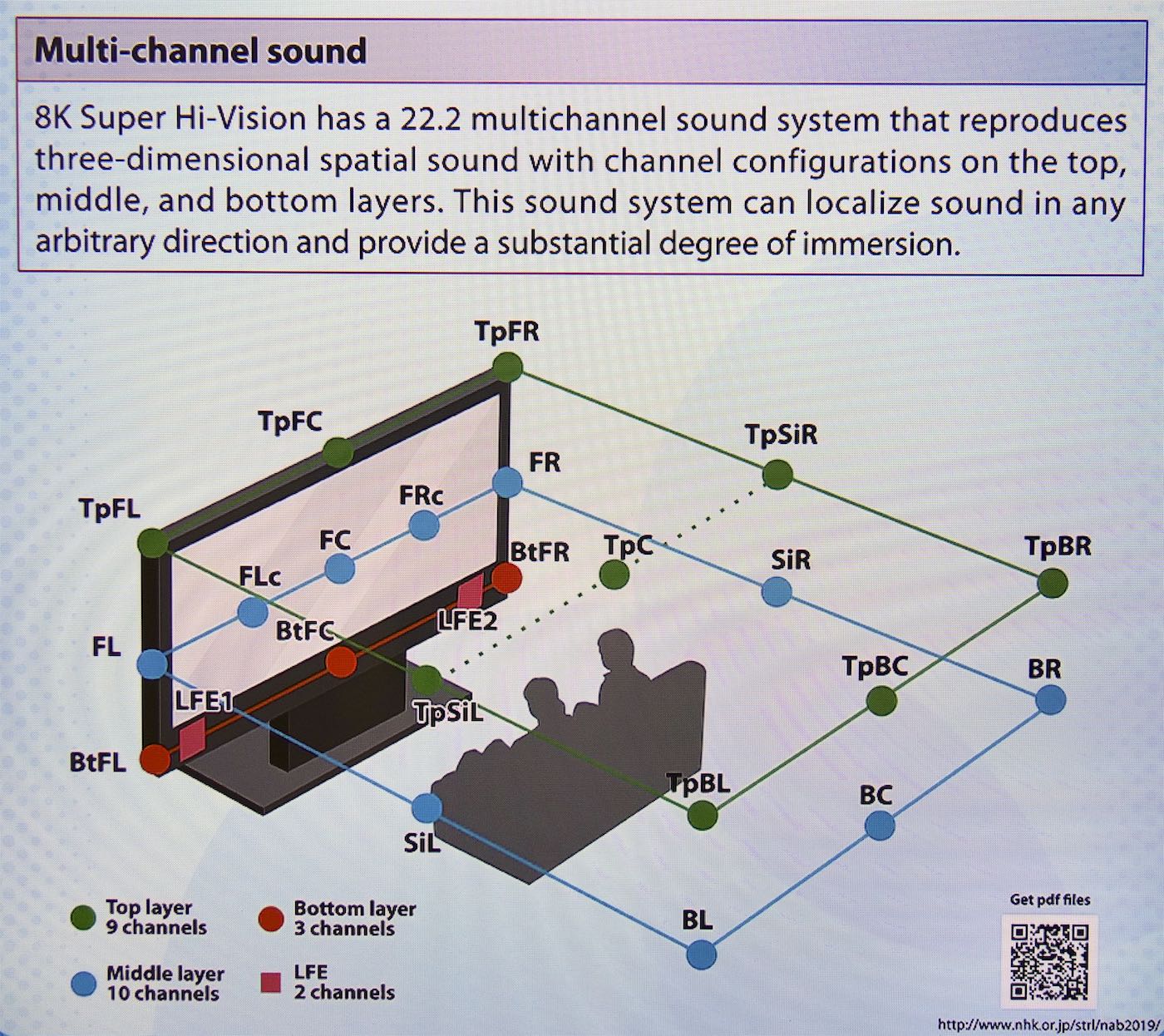
Second, Sharp showed an affordable 8K micro-four-thirds camcorder: 33 million pixels, MFT lens mount, 10-bit H.265 onboard recording using SD cards, shipping this summer for under $4000:
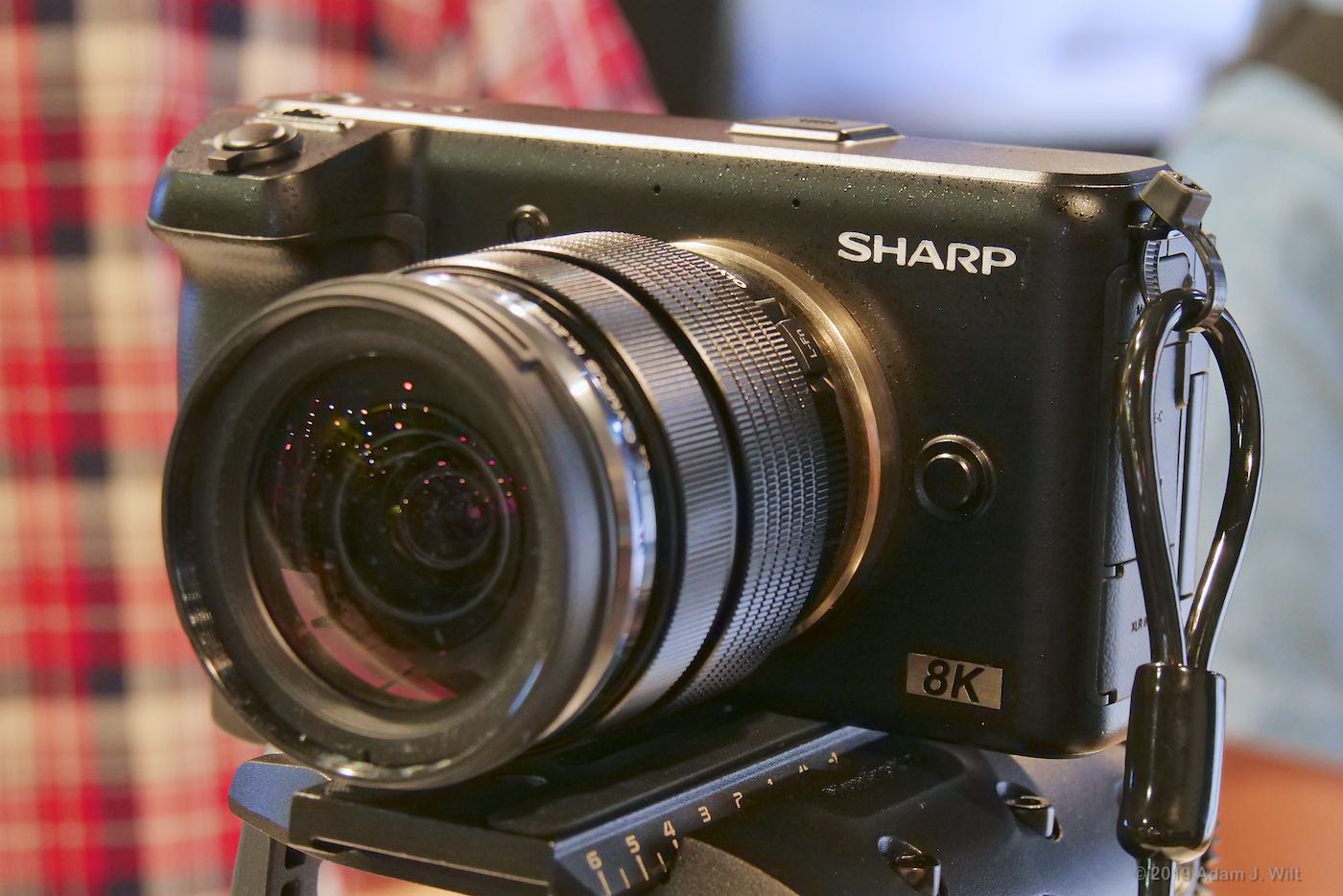
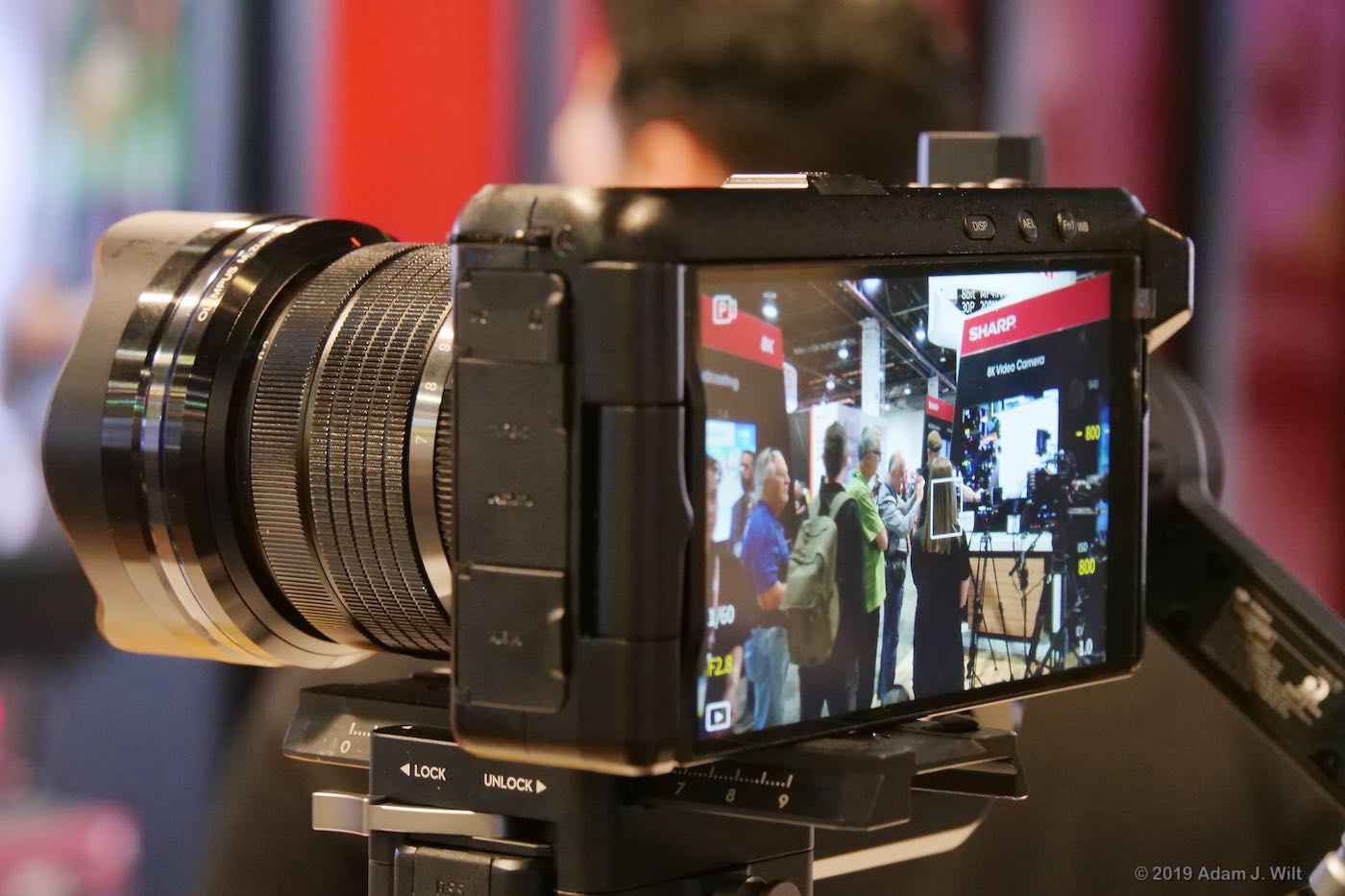
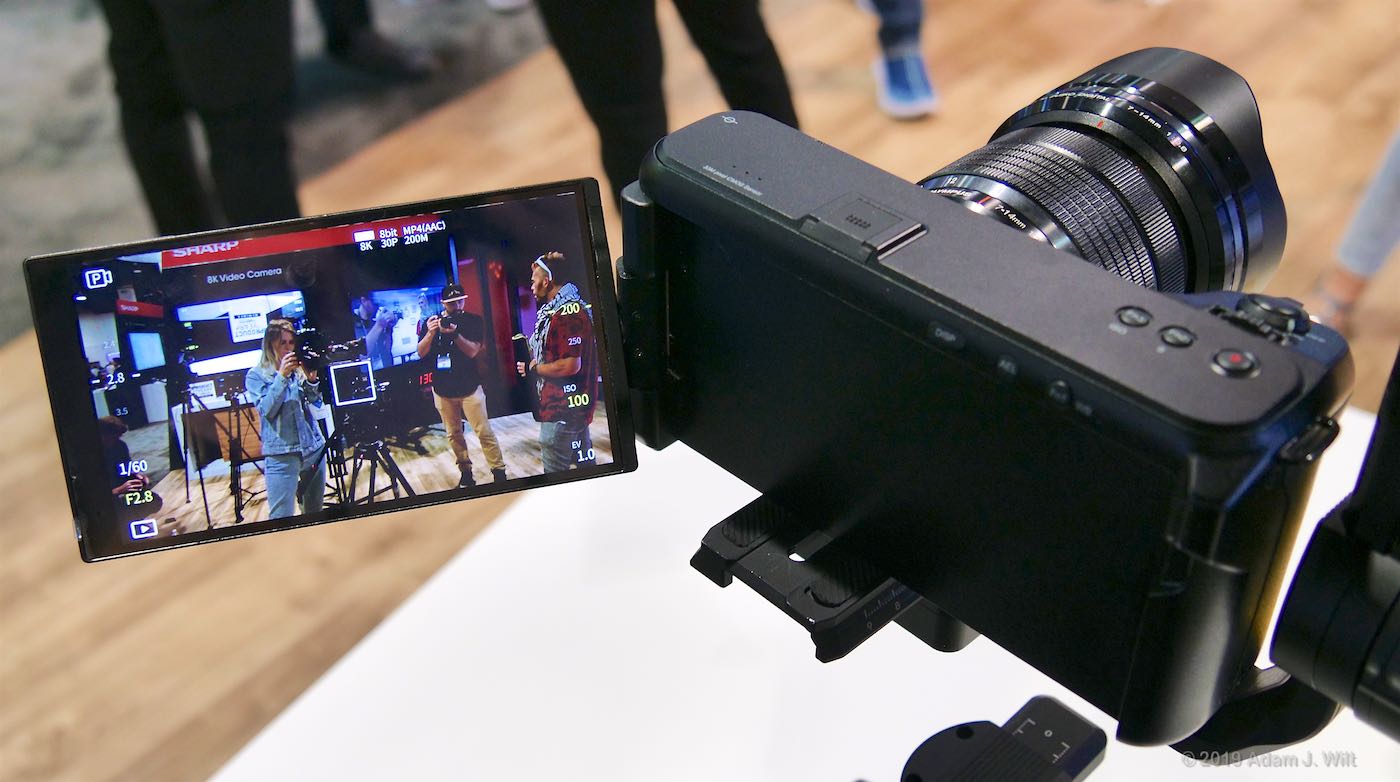
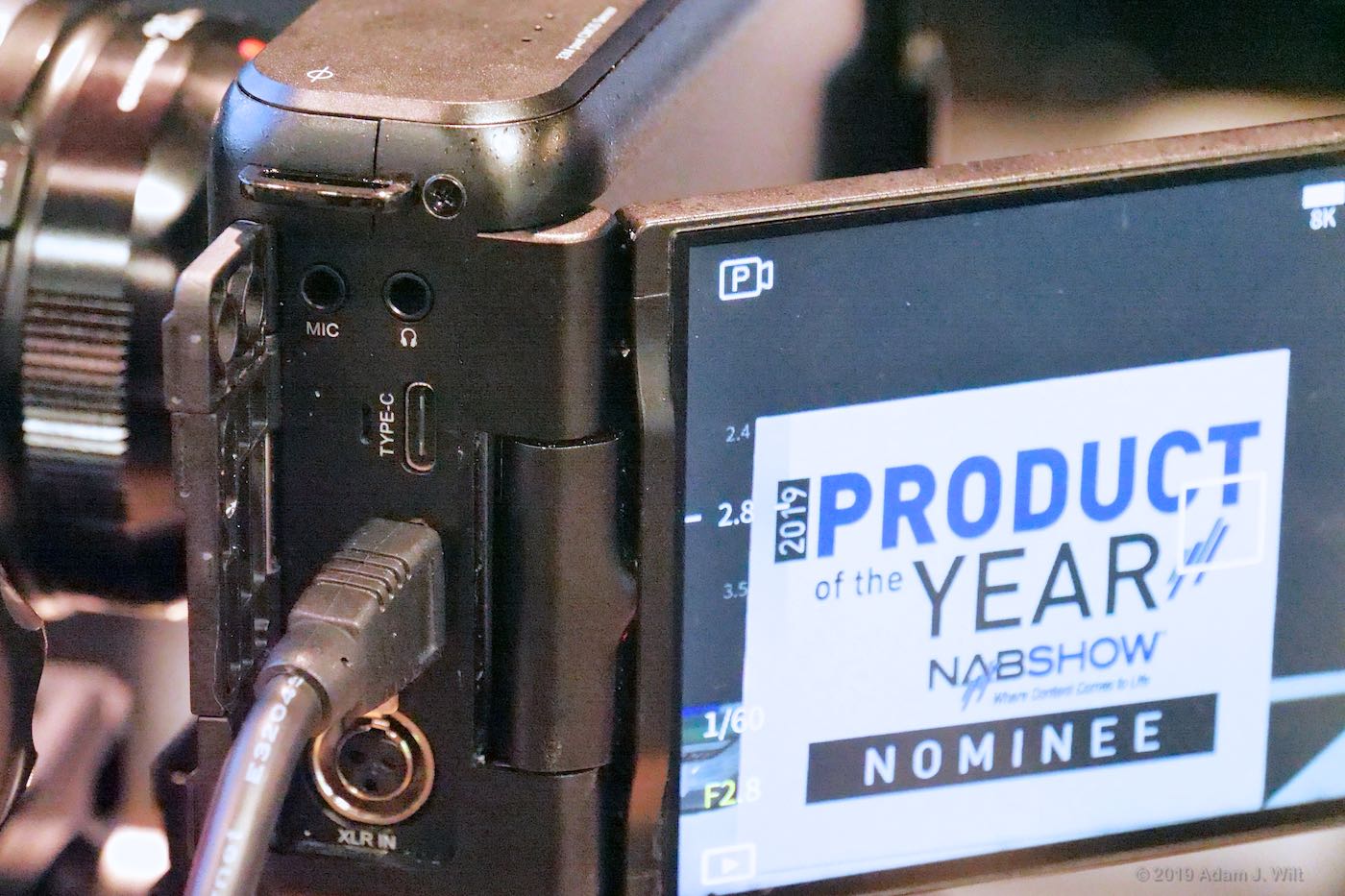
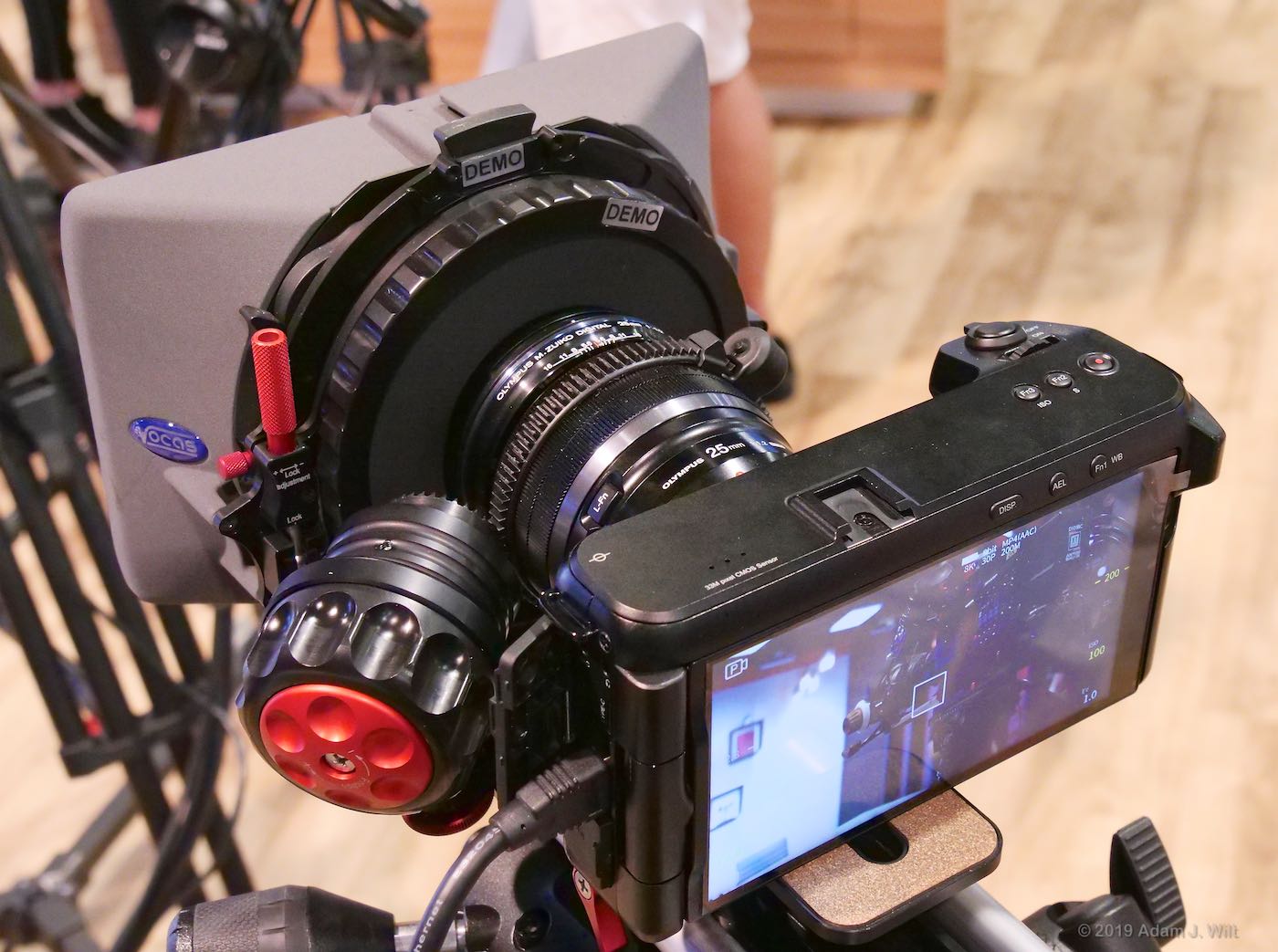
True, it’s only 8K/30p, not the 8K/60p of the broadcast/satcast standards (it is able to shoot 60p at 4K). But consider the first affordable HD camcorder, JVC’s $3600 GR-HD1 of 2003. It recorded HDV images at 720/30p, not the 720/60p of the broadcast standard. History may not repeat, exactly, but it rhymes.
Eric Escobar shot one of the first (possibly the first) HDV short films, “Apples & Oranges”, on the GR-HD1 back when it came out (in the screening invitation, he famously said, “it’s only two minutes long, so if you don’t like it, it will be over soon”). Heroic measures were needed back then to convert the M2T streams captured over FireWire into something editable. You should be able to pop out the Sharp’s SD card and mount it on your computer, and with luck its 8K files will be directly accessible in Premiere, Avid, Resolve, and FCPX. And you can already buy 8K displays to view ’em on, too.
Maybe Eric will repeat history with another “first” short film — 16 years later, but with about 33x the pixels.
Disclosure: There is no material connection between me any any of the vendors mentioned, nor have any of them offered any payments, bribes, free food, or other blandishments for favorable coverage.

Filmtools
Filmmakers go-to destination for pre-production, production & post production equipment!
Shop Now